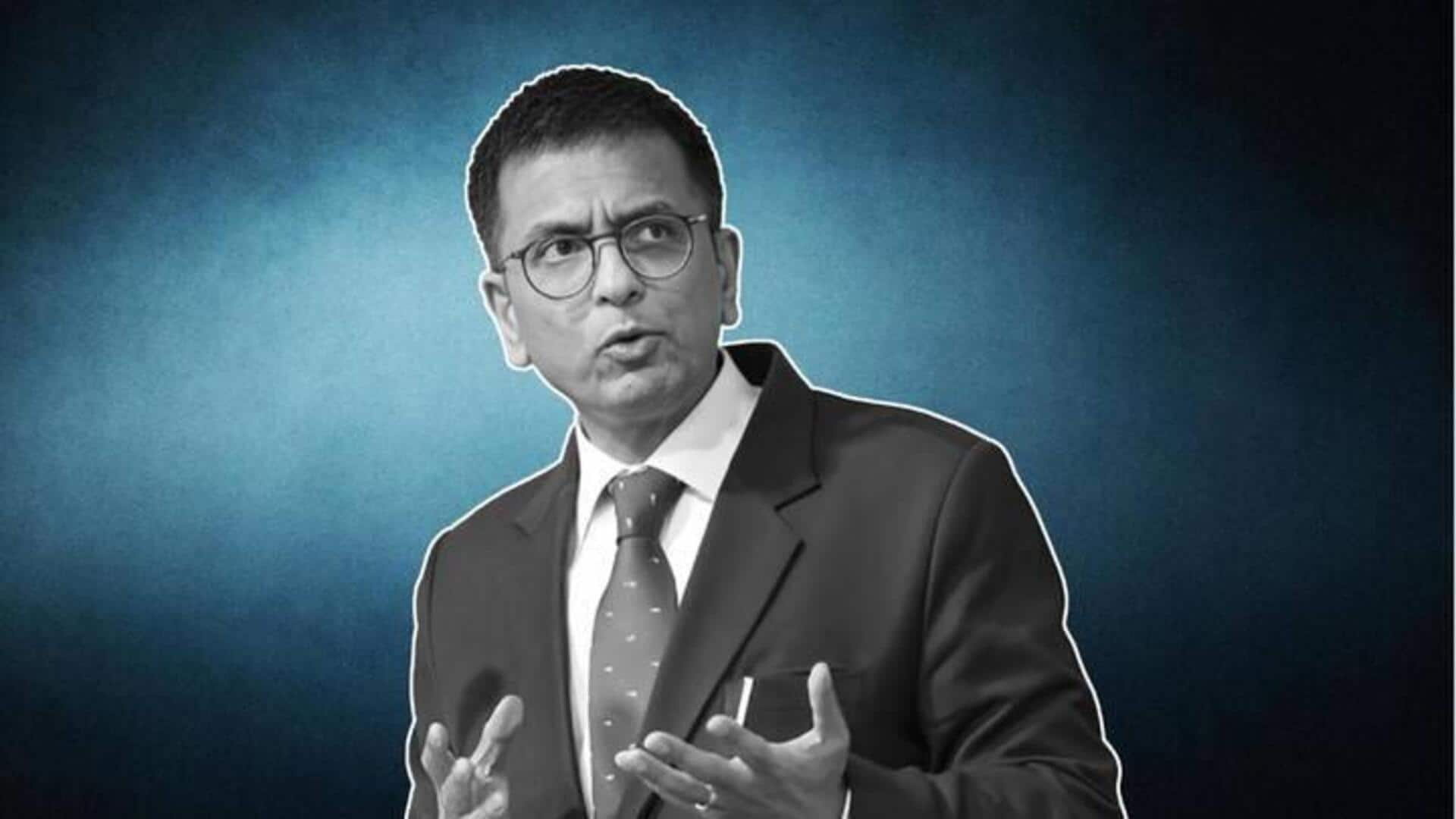
Indian courts prioritize marriage over individual: CJI DY Chandrachud
What's the story
Chief Justice of India (CJI) DY Chandrachud, on Sunday, opined that Indian courts have often prioritized marriage over individual rights. Speaking at the Justice ES Venkataramiah Centennial Memorial Lecture, he emphasized the relationship between private and public life. The CJI questioned the potential harm in limiting the law's reach to the household, acknowledging the need for privacy but also highlighting the risk of inequality within homes.
Context
Why does this story matter?
In India, the Right to Privacy is "intrinsic to individual's life and personal liberty" and is inherently protected under Article 21 of the Constitution. However, the constitutional guarantee is often abused to cover up crimes within the family or household. There are certain laws, like the highly contested marital rape exception (MRE) in the Indian Penal Code (IPC), that reinforce the abuse. However, Chandrachud asserted that laws are "powerful tools for opening public spaces as well as curbing private discrimination."
Details
CJI underscores need to close gender pay gap
Addressing pupils at the National Law School of India University (NLSIU) in Bengaluru, CJI Chandrachud cited examples of financial decisions that favor male education over female education. He also stressed the need to close the gender pay gap. He argued against ignoring hierarchies and prejudices within private spaces, stating that privacy should not be used as a shield to protect rights violations from legal scrutiny. Apart from gender inequality, the CJI also underscored the immediate need to make courts disability-friendly.
What Next?
Privacy should not be used as barrier against law
Chandrachud called for advocacy that goes beyond gender-sensitive policies to include initiatives recognizing and rectifying the unique challenges faced by women. He emphasized understanding privacy as a protection against excessive intrusion rather than a barrier against the law and due process. The Chief Justice urged for a more comprehensive approach to tackle discrimination in both the public and private spheres, ensuring that privacy does not become an excuse for perpetuating inequality.
Quote
Look beyond binary of public and private, suggests CJI
He also emphasized the need for the law to look beyond the binary of public and private spaces to combat discrimination based on gender, disability, and caste. "Overcoming socially ascribed roles necessitates transcending artificial public-private dichotomies," he said.
Twitter Post
Watch: CJI's speech at NLSIU
Watch the Inaugural Justice E S Venkataramiah Centennial Memorial Lecture, delivered by the Hon'ble Chief Justice of India today at Bengaluru! https://t.co/lwhrpwnz1D
— NLSIU (@NLSIUofficial) December 17, 2023